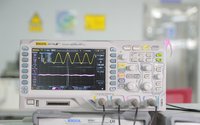Key knowledge points of chip verification testing
Date:2024-02-01 11:58:56 Views:1934
In the process of chip design and production, chip verification testing is a crucial step. It ensures that the functionality and performance of the chip meet specification requirements, and eliminates any manufacturing defects and design errors. This article will explore the key knowledge points of chip verification testing to help readers better understand and respond to the challenges of chip verification testing.
Chip testing refers to the testing and evaluation of various performance aspects of a chip to verify whether it meets its design requirements and specifications. It ensures chip quality and reliability, and plays an important role in subsequent chip applications.
Firstly, chip testing should cover various functions and performance of the chip, including logic function, simulation performance, timing characteristics, etc.
_20240201115812_751.png)
Logic function testing is the verification of various logical functions of a chip, ensuring that the chip can correctly execute various instructions and operations.
Simulation performance testing is an evaluation of the analog circuit and signal processing capabilities of a chip, such as the accuracy and precision of sampling and converting analog input signals.
Timing characteristic testing is the testing of the response time and timing requirements of a chip under different operating conditions, ensuring that the chip can meet its design specifications and timing requirements.
Secondly, chip testing requires boundary testing of various functions and performance, as well as testing for abnormal situations. Boundary testing is an evaluation of the performance of a chip under extreme operating conditions to verify whether the chip can function properly under boundary conditions.
Abnormal situation testing is a test of the response and processing ability of a chip under unexpected input and operating conditions, to verify whether the chip can handle and recover correctly in abnormal situations.
In addition, chip testing also requires some special tests, such as power consumption testing and temperature testing.
Power consumption testing is the measurement and evaluation of the power consumption of a chip to verify
The power consumption performance of the chip in various working states and provides data support for subsequent power management.
Temperature testing is an assessment of the performance of a chip under different temperature conditions
Conduct an evaluation to verify the reliability and stability of the chip in different temperature environments.
Finally, chip testing also requires a series of reliability and stability tests. Reliability testing is an evaluation of the performance of a chip under long-term and high load conditions to verify its reliability and lifespan. Stability testing is the testing of the stability and consistency of a chip under different working conditions to verify its stability and consistency in various working environments.
The above is the content related to chip verification testing organized by Chuangxin Testing, hoping to be helpful to you. Chuangxin Testing is a professional testing institution for electronic components, currently mainly providing integrated circuit testing services such as capacitors, resistors, connectors, MCU, CPLD, FPGA, DSP, etc. Specializing in functional testing of electronic components, appearance testing of incoming electronic components, anatomical testing of electronic components, acetone testing, X-ray scanning testing of electronic components, and ROHS component analysis testing. Welcome to call, we will be happy to serve you!




 Weixin Service
Weixin Service

 DouYin
DouYin
 KuaiShou
KuaiShou





















